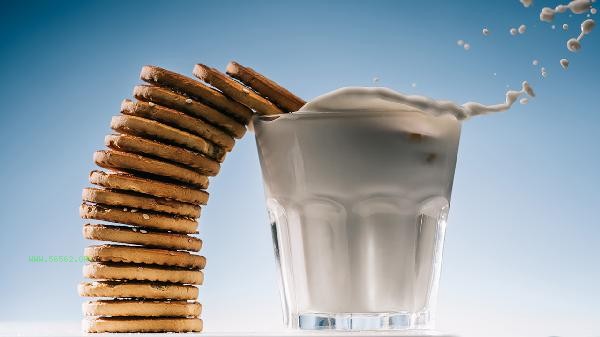Eating soda crackers before drinking can help slow down alcohol absorption and protect the gastric mucosa. The main ingredients of soda crackers include sodium bicarbonate, wheat flour, etc. Its mechanism of action involves neutralizing stomach acid, delaying alcohol from entering the bloodstream, reducing stomach irritation, providing basic energy, and reducing the risk of drunkenness.

1. Neutralizing stomach acid
Sodium bicarbonate in soda crackers is a weak alkaline substance that can react with the acidic environment in the stomach and temporarily neutralize some stomach acid. This effect can reduce the direct erosion of gastric mucosa by gastric acid on an empty stomach, especially for people with chronic gastritis or excessive gastric acid secretion, which is more protective. However, it should be noted that its effect lasts for a short period of time, and excessive consumption may cause bloating.
2. Delaying Alcohol Absorption
The starch component in biscuits forms a physical barrier in the stomach, delaying gastric emptying and slowing down the rate of alcohol entering the small intestine. The small intestine is the main site for alcohol absorption, and this delayed effect can reduce the peak alcohol concentration in the blood and alleviate the metabolic burden on the liver. But it is necessary to drink a moderate amount of water to avoid the cookies being too dry and affecting their effectiveness.
3. Reduce stomach irritation
Direct contact of alcohol with the fasting stomach wall may cause mucosal congestion or even small bleeding points. The solid form of soda crackers can adsorb some ethanol molecules, reducing the concentration of alcohol in contact with the stomach wall. For people who are prone to stomach pain and acid reflux after drinking alcohol, this buffering effect can alleviate discomfort symptoms, but cannot completely avoid the damage of alcohol to the digestive system.

4. Providing basal energy
The glucose produced by the decomposition of wheat flour can maintain basal blood glucose levels and avoid hypoglycemic reactions caused by fasting alcohol consumption. Alcohol metabolism inhibits liver glycogen breakdown, and early intake of carbohydrates can partially compensate for this process. But soda crackers have lower calories and cannot replace regular meals. It is recommended to pair them with protein foods to enhance the sustained energy supply effect.
5. Reduce the risk of drunkenness
Through the above comprehensive mechanism, soda crackers can delay the occurrence time and degree of drunkenness to a certain extent. Sodium bicarbonate also has a slight neutralizing effect on acidic substances produced by alcohol metabolism. However, it should be noted that its effectiveness is limited and cannot be used as a protective measure against excessive drinking. The key still lies in controlling the amount and speed of alcohol consumption.

In addition to consuming soda crackers, it is recommended to eat foods containing high-quality protein and healthy fats, such as eggs, oats, or nuts, 1-2 hours before drinking alcohol, which can more effectively delay alcohol absorption. Maintain a rhythm of no more than one glass per hour while drinking alcohol, and alternate between drinking equal amounts of water. Long term drinkers should regularly check their liver function and promptly undergo gastroscopy if they experience persistent discomfort in the stomach. Note that soda crackers have a high sodium content. Hypertensive patients should control their intake and avoid taking them together with carbonated drinks to worsen stomach bloating. No food protection can eliminate the harm of alcohol, and the safest practice is still to drink alcohol in moderation or avoid it.









Comments (0)
Leave a Comment
No comments yet
Be the first to share your thoughts!